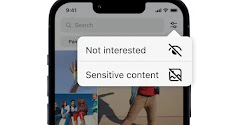More commonly, the confirmation bias could hurt you or the people around you. It heavily reinforces stereotypes for certain groups of people. Whether its race, gender, sexuality, class, or political parties, everyone has preexisting opinions about these things. The confirmation bias can also be referred to as the 'myside' bias, aka the lack of motivation to pay attention to things I do not already agree with. The implications of this bias are endless, it effects our daily lives more than we realize. Some major areas of implication are in law, medicine, and relationships. A serous example of this could occur if a doctor comes into an appointment with an assumption about what a patient has. If some of the evidence found during the appointment relate to the diagnosis the doctor has in her head, she may ignore the things that do not, and give an incorrect diagnosis.
Another example could be if an eye-witness does not have a clear memory of who robbed the person across the street, but has always believed that a certain race is more violent, and only ever payed attention when that race is in trouble on the news, they may accuse the wrong person (and confidently).
Social media has strengthened the confirmation bias. We are unable to click 'not interested' or 'see less like this' on posts that relate to things we do not agree with, which results in more of the things we do agree with popping up. The confirmation bias, while it filters less information into our brains, it also restricts our ability to have open minds. People are more likely to refuse new information, even if its true, just because all other evidence they have seen (more like payed attention to) says otherwise. Because social media emphasize this, our generation is at a higher risk to its effects. We must do our do-diligence and fight to keep an open mind and learn things from every opinion possible, even if its uncomfortable.



No comments:
Post a Comment